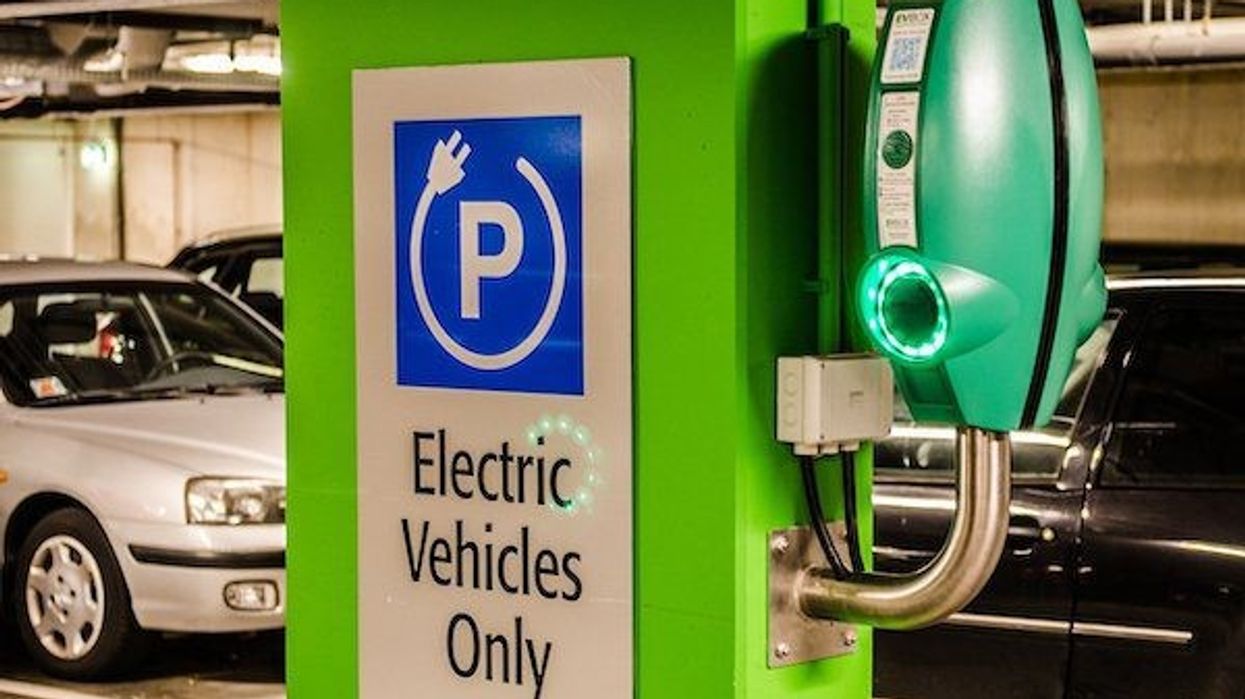In 2021, more electrical vehicles cruised on Canadian roads than ever before.
According to data from Statistics Canada tracking new motor vehicle registrations, 165,362 new battery electric, plug-in hybrid electric, and hybrid electric cars were registered in Canada in 2021. That number was up from 95,806 in 2020.
This year, EV-related activity is looking just as strong. Quarterly numbers indicate that Q1 2022 saw close to 41,000 new vehicles utilizing electric charging in either full or partial capacities.
But like cars fuelled by gasoline and diesel, EVs have logistical needs. While traditional cars require regular trips to the gas station, EVs need to be charged weekly, if not every few days or daily, depending on how often the car is being used. And although charging stations are increasingly cropping up in public spaces throughout Canada, there are challenges associated with using public chargers.
One issue is that there aren’t all that many public chargers. Another is the inconvenience of the whole ordeal.
“Even with the fastest charger on the street, you still have to go there, be stuck in traffic. You still have to wait for your car to charge,” says Carter Li, CEO of SWTCH Energy. “Let's say it's super quick, like 15 minutes, but then you still have to drive back home. You add all that up, and it's a lot of time out of your day.”
As far as Li is concerned, EV charging stations and residential buildings should go hand-in-hand. He founded SWTCH Energy in 2016 to provide EV charging and energy management solutions for multi-tenant buildings in particular.
For Li, it’s not just about the convenience of having EV chargers on residential sites -- his belief is that as Canada makes moves towards electrification, doing so efficiently relies on having the proper infrastructure in place.
“At this point, we've deployed over 2,200 charging stations in over 400 buildings,” he says. “[We’re] really trying to address the challenges of people who live in high-density urban settings, in apartments and condominiums… and the challenges of what real estate developers and property managers face in trying to provide this amenity for the residents and tenants.”
The landscape of EVs in Canada has indelibly shifted in the past several years. Today, provincial building codes mandate the inclusion of EV chargers in new builds.
“Now, the question is not should we put in electric vehicle charging for a new building? It's how do we do it in a cost-effective way? -- because a lot of these requirements are quite challenging. You need to figure out how to provide power for 100 of the parking stalls out of the 400 or 500 parking stalls in that garage,” says Li. “That’s where we come in. We focus on maximizing the electrical infrastructure that was either planned for that building or existing in that building.”
With that said, older buildings still pose a considerable challenge.
“Are there situations where the cost might be above $10,000 a unit because it's a 1920s building and it needs extensive electrical upgrades? Potentially. But I think the cost is also mitigated if you do have a couple of people paying into that program,” he adds.
Bonnie Meisels is a real estate broker in Montreal. Quebec has been at the forefront of the electrification movement in Canada, and Meisels is an advocate for anything that minimizes the ecological footprint of real estate. As far as she's concerned, electric vehicles fall into that category.
In her mind, affordability is the biggest barrier to electrification, and while she knows of instances where tenants have joined forces to absorb the costs of EV-related upgrades in an existing building, she thinks that the onus should more often than not be on the housing provider.
“This is an investment,” she says. “If we're talking about residential buildings, the cost shouldn't be passed on to the tenant. Those owners need to be thinking [about] the future. We're going to need charging. We need the infrastructure.”
There are benefits to adding this kind of infrastructure to an owned building. Having EV chargers on site can increase resale value. For rental providers, it can justify charging higher rents or charging separately for the EV-equipped parking space itself.
In those ways, on-site chargers are an economic value proposition.
“Property management companies and real estate developers are in a business and profit is central, so we have to make it that aligned to achieving that goal of electrification,” says Li.
But then again, the issue comes back to affordability. There are high costs associated with obtaining an electric vehicle, high costs associated with purchasing charging stations yourself, and high costs associated with relying on a housing provider to make those upgrades on behalf of residents.
And while, at the moment, the Canadian government offers a number of rebates geared at EV-related upgrades, the up-front cost can still be a lot to absorb.
“It's great that the government is offering these rebates. It's better than nothing. But all of this stuff adds up,” says Meisels. “One of my clients, for example, had an electric vehicle, and there was some kind of rebate from the government for the charger, but it was still a bit of a sticker shock for them. They ended up paying for the electrician so they could reap the benefits of having the charger. Their car was electric, they needed it, but was not cheap.”
While making the transition to EV can mean spending less on fuel and operating costs in the long-term, thinking long-term is a luxury. With inflation and the rising costs of goods, many people have to think about what they afford right now.
“One of the reasons I think that we don't have more adoption is because sustainable products are just that much more expensive,” says Meisels. “But I think the will is there from the people. They want to be more sustainable, they want to start doing, not talking, they want to start taking action, but there is still a gulf in terms of accessibility.”
So, the question remains what it has always essentially been: how can the EV space be made more inclusive and accessible for those with financial latitude, as well as for those without?
This is something that those involved in the sector are grappling with.
To that end, SWTCH Energy offers services geared at those who may not be able to front the initial cost of investing in an EV charger.
“We help them with the financial incentives, but we also provide what we call charging as a service where there's no upfront fee to install a charger. They just pay a monthly flat fee -- it's around $60 to $80 a month,” says Li. “So, [we’re] not just on the technology side, but we also have business tools to allow people who don't have thousands of dollars in cash to spend to be able to get access to charging infrastructure.”
Is this enough to encourage the widespread adoption of EV chargers? Li is optimistic and Meisels is hopeful, but only time will tell.





















